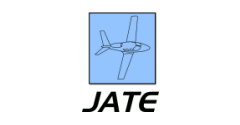Abstract
After the Pilot Source Study (PSS) 2015 was published, there was concern that the data were collected too soon after the First Officer Qualification Rule compliance date. The Collaborative Research Committee of the Aviation Accreditation Board International (AABI) voted to undertake the PSS 2018 to determine whether the results of the PSS 2015 were still valid. In fall 2018, five research teams collected 9,776 pilot records from five regional airlines and analyzed these data. In the PSS 2018, the criteria for success were: ≥90% completions and ≤1 extra training event. In rank order, the following pilots were most successful in regional airline initial training: (1) pilots who had an undergraduate GPA of 3.3 or higher, (2) pilots who graduated from college within 5 years of their hire date, (3) pilots who had either a military R-ATP (750 hours) or an institutional R-ATP (1,000 hours), (4) pilots who graduated from an AABI-accredited flight program, (5) pilots who had 1,500 or fewer total flight hours, (6) pilots who had a bachelor degree. In addition to these variables, multivariate analysis showed that the following variables provide additional prediction and classification for success: age, younger; flight instructor, yes; military pilot, yes; previous FAA failures, fewer. All four PSSs (2010, 2012, 2015, and 2018) have substantiated the 2010 ANPRM statement: ‘‘…experience is not measured in flight time alone’’.
Recommended Citation
Smith, Guy M.; Smith, MaryJo O.; Techau, Troy E.; and Hight, Michelle P.
(2020)
"Pilot Source Study 2018: Five Years after the FOQ Rule—New-Hire First Officer Backgrounds and their Performance in US Regional Airline Training,"
Journal of Aviation Technology and Engineering:
Vol. 9:
Iss.
1, Article 2.
Available at: https://doi.org/10.7771/2159-6670.1198


